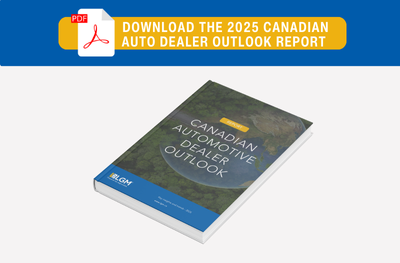Understanding Automotive Insurance Regulations
Car dealerships play a pivotal role in educating consumers about protection products that enhance the vehicle ownership experience. To ensure these products are understood and distributed ethically, specific regulations exist to safeguard consumers. These regulations also directly impact dealership operations, making compliance essential. Noncompliance can lead to penalties, legal action, and reputational harm—all of which can significantly impact a dealer’s business.
The Canadian automotive regulatory environment is undergoing significant change, and staying informed is critical. This article and the accompanying checklist offer insights into the evolving landscape of automotive insurance distribution regulations and provide actionable steps for dealerships to remain compliant.
Why Is Compliance Important?
Failing to comply with insurance product distribution regulations can have severe consequences for dealerships, including:
- License revocation or suspension
- Legal action and penalties
- Corrective measures or insurer supervision
- Reputation damage and loss of customer trust
How Can Canadian Automotive Dealers Stay Compliant?
Dealerships that sell insurance and F&I products must adapt their operations to meet evolving regulatory standards. While specific requirements differ by province or territory, common best practices include:
1. Insurance Licensing
- Individuals and businesses selling insurance products must obtain the appropriate licenses from the relevant regulatory authority in their province or territory.
2. Compliance with Insurance Laws
- Adherence to jurisdiction-specific laws and regulations governing insurance product sales is mandatory.
3. Disclosure and Transparency
- Dealerships must provide clear and accurate information about the insurance products they sell to ensure customer understanding.
4. Training and Education
- Sales representatives should undergo regular training to meet regulatory and ethical standards.
5. Record Keeping and Reporting
- Maintain detailed records of insurance transactions and provide required reports to regulatory authorities.
By performing regular self-assessments, dealerships can:
- Identify and address compliance risks.
- Enhance operational efficiency.
- Improve employee confidence and satisfaction.
- Foster ethical practices and positive customer experiences.
Download our FREE self-assessment compliance checklist for Quebec dealers below to get started today.
Staying Updated on Provincial Regulations
Each province and territory in Canada has its own insurance regulatory authority responsible for establishing, enforcing, and publishing relevant regulations. Dealers should regularly visit their province’s insurance regulator website for up-to-date information:
Alberta: Alberta Insurance Council
British Columbia: Insurance Council of British Columbia (ICBC)
Manitoba: Insurance Council of Manitoba
New Brunswick: Financial and Consumer Services Commission (FCNB)
Newfoundland and Labrador: Service NL
Nova Scotia: Office of the Superintendent of Insurance
Ontario: Financial Services Regulatory Authority of Ontario (FSRA)
Prince Edward Island: Office of the Superintendent of Insurance
Quebec: Autorité des marchés financiers (AMF)
Saskatchewan: Insurance Councils of Saskatchewan (ICS)
Northwest Territories and Nunavut: Office of the Superintendent of Insurance (OSI)
Yukon: Yukon Superintendent of Insurance
Managing Compliance in a Complex Regulatory Environment
LGM Financial Services, a leading F&I provider in Canada, has developed a self-assessment compliance checklist to help Quebec dealerships maintain ethical and compliant business operations. Regular use of this checklist ensures alignment with best practices, boosts team performance, and fosters confidence in regulatory adherence.
If you need support implementing these best practices after completing the checklist, reach out to your local Dealer Development Manager at Sales@LGM.ca for personalized guidance and assistance.
Disclaimer: The information provided herein does not, and is not intended to, constitute legal advice; instead, all information, content, and materials available herein are for general informational purposes only. Readers should seek independent legal counsel to obtain advice with respect to any particular legal matter.




